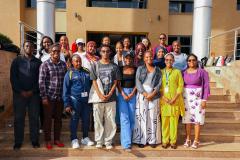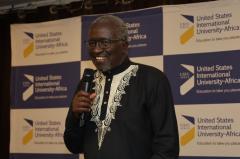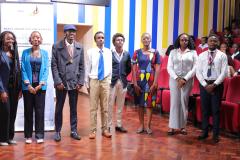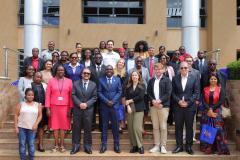Solid Minds Hosts Mental Health Awareness Session For Mastercard Foundation Scholars
On Tuesday, April 16, the Transitions Office of the Mastercard Foundation Scholars Program at USIU-Africa hosted a mental health while handling transition session for Scholars in Cohort 1 and 2, in partnership with Solid Minds, a partner of the Mastercard Foundation Scholars Program working with universities across Africa to elevate the mental health and wellbeing of students. The session was tailored to equip the Scholars with vital tools to manage their mental well-being as they prepare for life after university.
During the session attended by 51 Scholars, the Solid Minds team, led by Dr. Jean Pierre Ndagijimana focused on raising awareness about the mental health challenges faced by students, and providing valuable insights and coping mechanisms for navigating the unique pressures associated with transitioning from university to the professional world. The session addressed various aspects of mental health management, including stress reduction techniques, self-care practices, and identifying resources for continued support.
In his remarks, Dr. Jean Pierre emphasized the importance of mental health awareness and preparedness for the soon to be graduating Scholars.
As you prepare to embark on your journeys beyond campus, regardless of the path you choose, it is critical for you to have the necessary tools to navigate the challenges you may encounter. It is our hope that this session will empower you to take a proactive approach to take care of your mental health, so that you can continue thriving, he said.
We hope that the insights gained from the session will serve as invaluable resources in navigating the complexities of life beyond university. With a solid foundation in mental health awareness and coping strategies, you are well-equipped to become resilient leaders in your respective fields of interest, he added.
In addition to the plenary session, the Scholars also had the opportunity to put into practice what they had learned through drafting approaches in response to several real-world scenarios. The exercise, they noted, was an opportunity to openly discuss their anxieties and uncertainties and learn healthy coping mechanisms which would make their transition feel less daunting.






